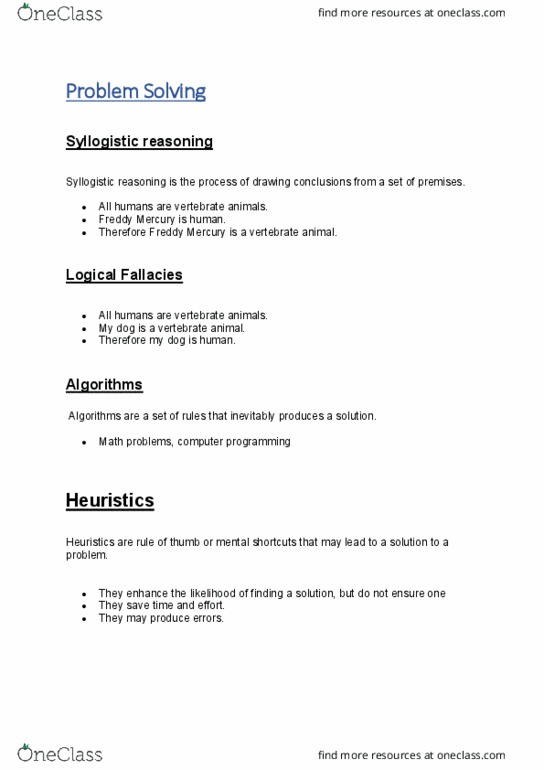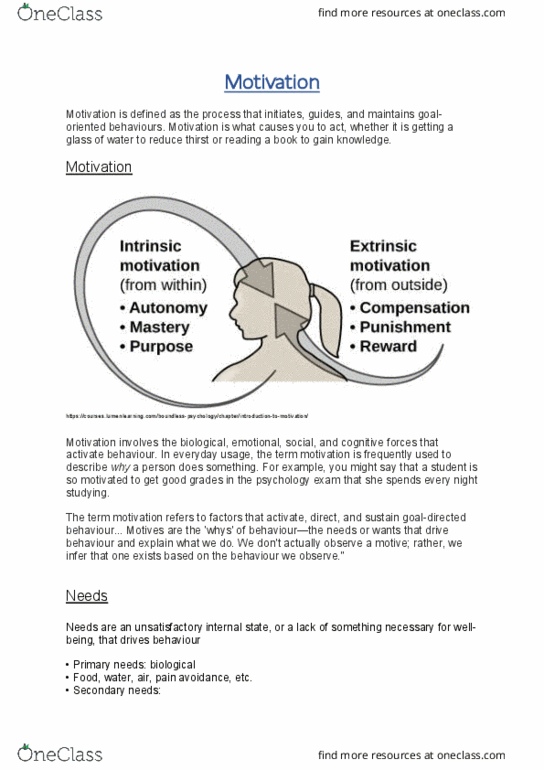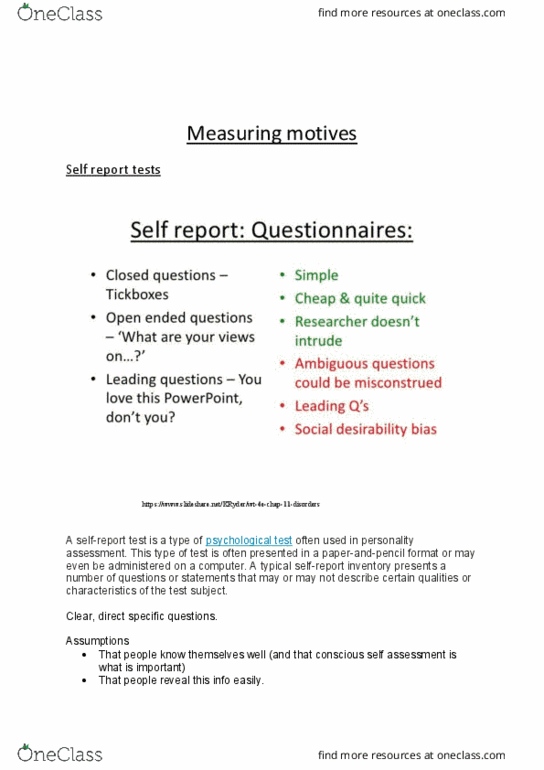PSYCH 100 Lecture Notes - Lecture 21: Humanistic Psychology, Abraham Maslow
PSYCH 100 verified notes
21/39View all
Document Summary
Motivation is defined as the process that initiates, guides, and maintains goal- oriented behaviours. Motivation is what causes you to act, whether it is getting a glass of water to reduce thirst or reading a book to gain knowledge. Motivation involves the biological, emotional, social, and cognitive forces that activate behaviour. In everyday usage, the term motivation is frequently used to describe why a person does something. For example, you might say that a student is so motivated to get good grades in the psychology exam that she spends every night studying. The term motivation refers to factors that activate, direct, and sustain goal-directed behaviour Motives are the "whys" of behaviour the needs or wants that drive behaviour and explain what we do. We don"t actually observe a motive; rather, we infer that one exists based on the behaviour we observe. " Abraham maslow is one of the most influential psychologists of the twentieth century.




